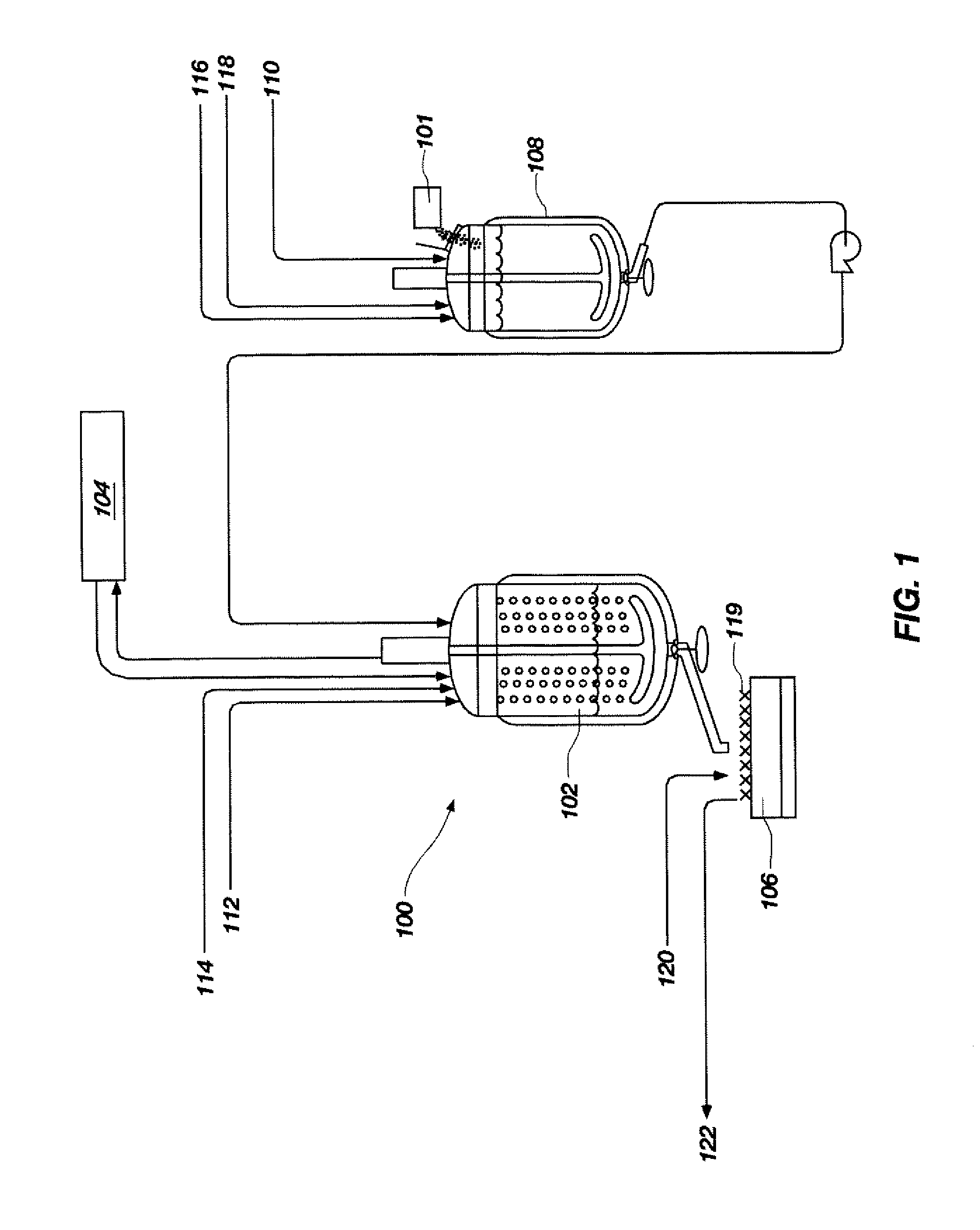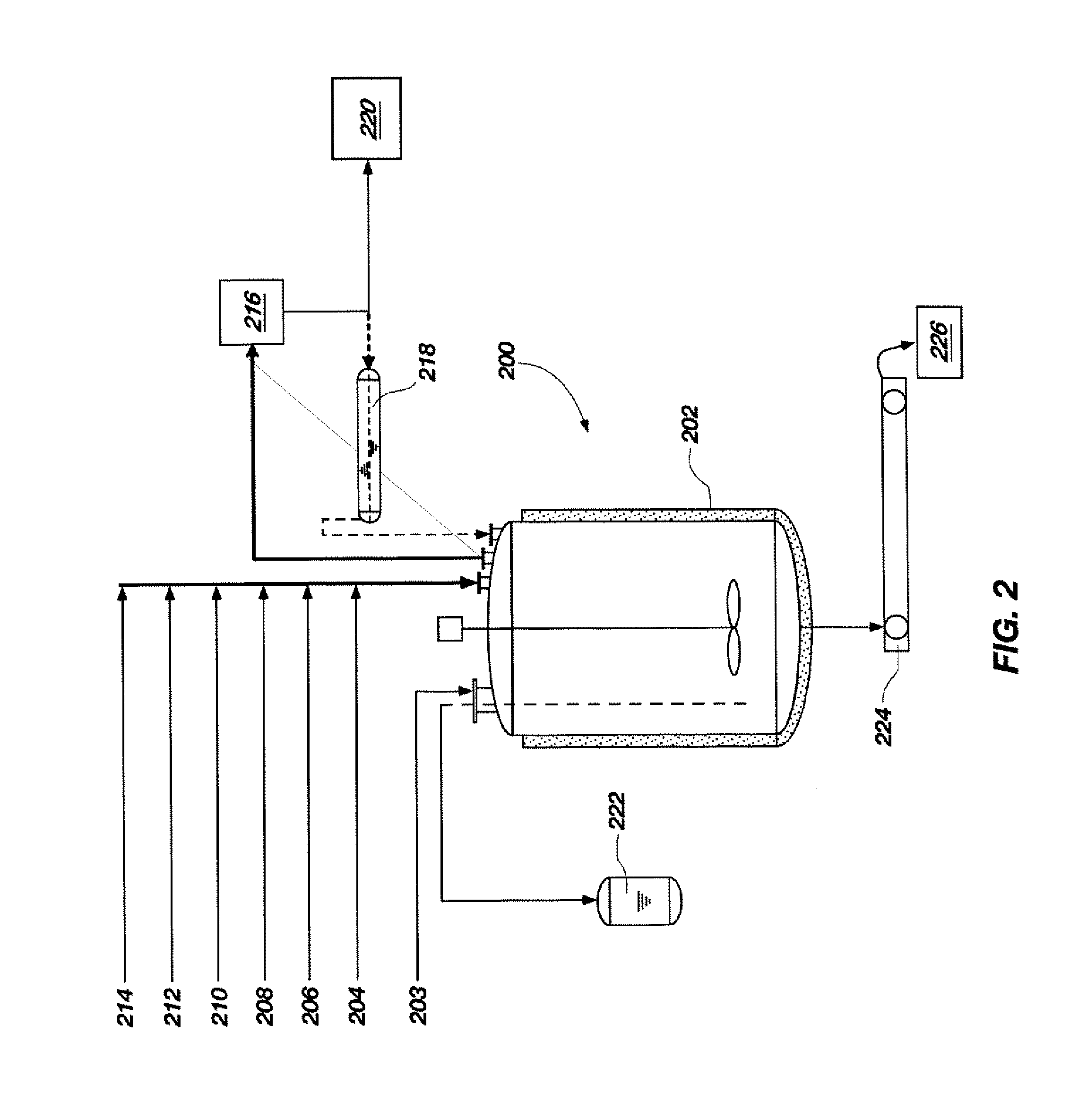Methods of producing 1,3,5-triamino-2,4,6-trinitrobenzene
a technology of triamino-2,4,6 and benzene, which is applied in the preparation of amino compounds, organic chemistry, chemistry apparatus and processes, etc., can solve the problem that tatb is no longer available from a qualified supplier for department of defense applications
- Summary
- Abstract
- Description
- Claims
- Application Information
AI Technical Summary
Benefits of technology
Problems solved by technology
Method used
Image
Examples
example 1
Synthesis of TATB from TNPG
[0040]TNPG (39.8 g (0.152 mol)) was slurried in 60 ml of toluene in a 250-ml round bottom flask equipped with an overhead stirrer and a short path condenser. TEOF (76.1 ml (0.457 mol)) was added to the round bottom flask and the round bottom flask was heated to 80° C.-85° C. to distill the toluene. After distilling 55 ml of the toluene, an additional 76.1 ml of TEOF was added to the round bottom flask. The distillation was continued until an additional 62 ml of distillate was collected. The heat was discontinued and the reaction stirred at 25° C. for 14-16 hours. Toluene (20 ml) was added to the round bottom flask, which was heated to 35° C. to dissolve all solids. Water (28 ml) was added to the round bottom flask and stirred for 10 minutes before withdrawing and discarding the aqueous layer. A 5% NaOH solution (28 ml) was added to the round bottom flask and stirred for 10 minutes before withdrawing and discarding the aqueous layer. Water (28 ml) was added...
example 2
Synthesis of TATB from Phloroglucinol
[0041]A process flow showing the synthesis of TATB from phloroglucinol is shown in FIGS. 3 and 4. FIG. 3 shows a process flow for nitrating phloroglucinol to produce TNPG and for forming the acid wet TNPG. As shown at 2 and 4, a 500-gallon, glass-lined Pfaudler reactor was charged with 150.3 gal (569 L) of deionized water and 88.3 gal (334 L, 7755 mol) of 98% (min. by analysis) nitric acid. The dilute nitric acid solution was stirred and cooled to a temperature between approximately −6.7° C. and approximately 4.4° C., as shown at 6. To a 200-gallon Pfaudler reactor was added 113 gal (428 L) of deionized water and 20.8 gal (79 L, 1467 mol) of a 50% sodium hydroxide solution, as shown at 8 and 10. Anhydrous phloroglucinol (203.3 lbs (92.3 kg, 732 mol)) was added, as shown at 12, and stirred to completely dissolve all solids. The sodium phloroglucinate solution was maintained below 30° C. and held for a maximum of 24 hours prior to addition of sodiu...
PUM
| Property | Measurement | Unit |
|---|---|---|
| Percent by mass | aaaaa | aaaaa |
| Percent by mass | aaaaa | aaaaa |
| Weight | aaaaa | aaaaa |
Abstract
Description
Claims
Application Information
 Login to View More
Login to View More - R&D
- Intellectual Property
- Life Sciences
- Materials
- Tech Scout
- Unparalleled Data Quality
- Higher Quality Content
- 60% Fewer Hallucinations
Browse by: Latest US Patents, China's latest patents, Technical Efficacy Thesaurus, Application Domain, Technology Topic, Popular Technical Reports.
© 2025 PatSnap. All rights reserved.Legal|Privacy policy|Modern Slavery Act Transparency Statement|Sitemap|About US| Contact US: help@patsnap.com



